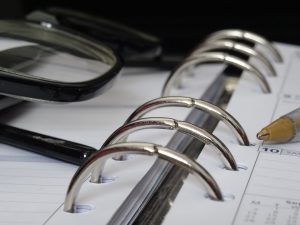This post has been written by Davina Richardson, Children’s Continence Nurse at Bladder & Bowel UK.
Do you worry about your child’s continence? Are you a professional involved in supporting children who have continence problems? Are there concerns about:
- Wetting, or dribbling, day or night?
- Pooing in their pants?
- Constipation?
- Do they appear to avoid using the toilet?
- Are you struggling with toilet training?
- Are you unsure whether your child is ready to toilet train?
Bladder & Bowel UK are contacted by professionals, parents or carers for advice on a wide range of continence problems. They are often confused as to why the child has a problem, or assume it is part of another disability or additional need. They may have received conflicting advice or may not have been able to find any support.
As part of Urology Week, we thought it may be helpful to provide some information.

So who is affected with bladder (and/or bowel) problems?
- Bladder (and bowel) problems in children and young people are very common. They affect children who have no other health, or developmental problems as well as children who have additional needs.
- Problems including difficulties with toilet training, wetting, constipation and/or soiling, affect up to 28% of all children and adolescents at any one time.
- Younger children are affected more often than older children, although problems can happen at any age.
- All children and young people with a bladder or bowel problem, including those who have additional needs, should be offered an assessment and treatment as appropriate.
- Parents and carers may be reluctant to discuss the problems for a wide range of reasons. They may think the child is being lazy, although this is not usually the case.
- There are lots of things that can be done to treat, manage and improve continence problems in children and young people.
Top tips for managing children’s continence problems
Seek professional help
Lots can be done to help cure and improve symptoms. Therefore we would always recommend discussing the problem with the child’s GP, school nurse or health visitor. For children with additional needs or health problems, their paediatrician may be able to help. Bladder & Bowel UK provide a helpline service, offering advice, information and signposting to services and other organisations.
We can be contacted at email: bladderandboweluk@disabledliving.co.uk or telephone: 0161 214 4591.
My child has been referred to a specialist children’s continence service. What will they do?
Specialist services for children and young people may be called Continence Services, Bladder and Bowel Services, Paediatric Continence Services, or Children’s Continence Services.
Means of referral to these services may differ. Most ask that individuals are referred by a doctor or nurse, whilst others may accept referral from different professionals. Some accept referral from parents or carers.
What help can these services offer?

Children’s continence services offer specialist advice, assessment, treatment, management and support to children and young people experiencing bladder and bowel problems. They will explain why children and young people experience bladder and bowel problems and what they think is causing the problem for your child. They may ask you to fill in charts to help assess the problem and suggest treatment options. They will then offer further appointments, which may include telephone calls to review your child’s progress and make further suggestions if they are needed.
Where will my child be seen?
Not all areas have a children’s continence service. However, those that do, usually have appointments in local hospitals and clinics. If you are offered an appointment at a time that is not convenient for you, or at a place that you cannot get to easily, then contact them to ask if there is an alternative. If you know your child will struggle to cope with a clinic visit, due to disabilities or additional needs, then let the service know.
I do not think my child is ready to toilet train. What should I do?

Modern nappies ensure that children remain comfortable and feel dry. Therefore, many children, particularly those with additional needs will not indicate when they are wet or soiled, leaving adults thinking they are not ready to toilet train. However, this may not be the case and children with delayed toilet training should be offered some support to achieve the necessary skills, to ensure that they do reach their potential.
If you think you may have problems toilet training your child, or they have additional needs, then discuss toilet training with their health care professional. There is also lots of information on our website.
Remember as well, that toilet training requires that children learn a set of skills, including being able to sit on the toilet for long enough to wee or poo, manage their clothes, be able to communicate that they need to go, be able to get the toilet and back again, and to wash their hands. They can start working on these skills early.
Additional information
More information on children’s continence problems is available on our website. We also have qualified children’s nurses who are able to offer generic support and advice via our helpline: 0161 214 4591 or email bladderandboweluk@disabledliving.co.uk.


Comments are closed